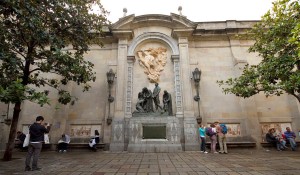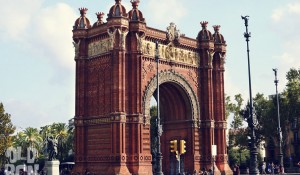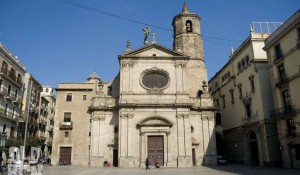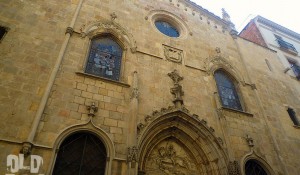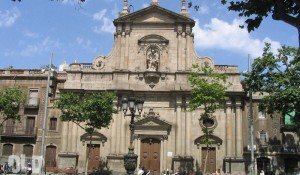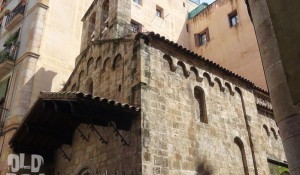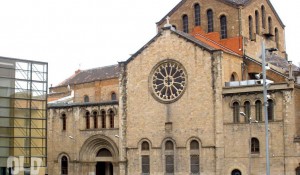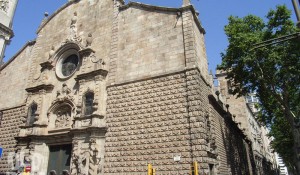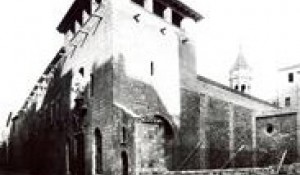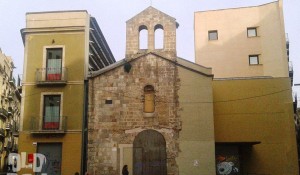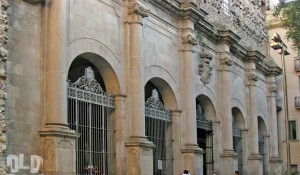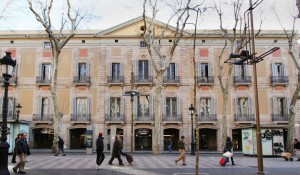Monuments
If there is anything the district has its large number of monuments, churches, palaces...
Monument to the heroes of 1809
This realist monument stands in surprising contrast to the predominant Gothic style of the surrounding buildings
It portrays five martyrs who were executed following an attempted uprising against the French troops during the occupation of Barcelona in 1808.

Arc de Triomf
In 1888 Barcelona hosted the Universal Exhibition
The Arc de Triomf was built as the gateway to the fair which was held in the Parc de la Ciutadella. The monument is classical in shape and proportions and features ground-breaking sculptural and decorative finishes replete with symbolism. It has become one of the city's iconic landmarks.

Basílica de la Mercè
The Virgin of "la Mercè" -Our Lady of Mercy- has been the Patron Saint of the city of Barcelona since 1687. Her image, in gothic style, is venerated in the Basilica of Our Lady of Mercy
The Basilica of Our Lady of Mercy, known simply as Basilica de la Merced, is a baroque church in the plaza de la Merced, in the Gothic Quarter of Barcelona. It was built between 1765 and 1775, designed by catalan architect Josep Mas i Dordal. It is dedicated to the Virgen de la Merced as the patron of Barcelona, and is one of the most representative churches of the city.

Iglesia de San Jaime
Neither its name nor its appearance suggests that this church bears any relation to the Jewish culture that once flourished in the city
However, the site of the Sant Jaume Church was, for many centuries, the old synagogue of Barcelona.

Church of Sant Miquel del Port
It is a baroque church, originally conceived as a temple of square plant
It was extended a century later, and that's when the structure was remodeled, becoming its plant in the typical structure of three ships with cruise and a second dome.

Capilla de Marcús
This chapel is one of the oldest in Barcelona, and one of the few intact examples of Romanesque in the city, the twelfth century
Chapel Marcus is one of the oldest in Barcelona, whose foundation next to a hospital and a cemetery is due to the powerful banker Bernat Marcús.

Church of Santa Maria de Montalegre
The church is located in the Raval district and was the temple of the old House of Charity
Pati Manning spaces of the old House of Charity of Barcelona, are occupied by the Centre for Cultural Studies and Resources (CERC)

Church Mare de Déu de Betlem
Baroque building, which suffered a fire in 1936
Only the Baroque facade, one nave basilica type and 10 side chapels remains. It was the first home of the Jesuits in Catalonia and was home to the largest college of the University.

La Capella
The Chapel of the former Hospital is housed in the monumental-style installations of the Hospital de la Santa Creu and la Casa de la Convalescència, and is a building catalogued as a Historic Monument of National Interest.

Chapel of St. Lazarus
The Community of Sant'Egidio is responsible for this church
The church of Saint Lazarus is a Romanesque chapel which was part of a hospital located in this place between the twelfth and fifteenth.

Parish of St. Augustine
The first stone of the new convent of St. Augustine began 1728 and opened in 1750
In the nineteenth century it was marked by a series of incidents that negatively affected the community and its riches. The community had to leave. In 1835 he was burned, with the secularization became parish, function still has.

Palace Moja
This palatial residence, built by the Marquises of Moja, was designed by the architect Josep Mas in a late Baroque style in which the influence of French Neo-Classicism can be seen
It was completed in 1784. Notable from this period are the facades and the Grand Salon, with paintings (1791) by Francesc Pla, known as El Vigatà.





